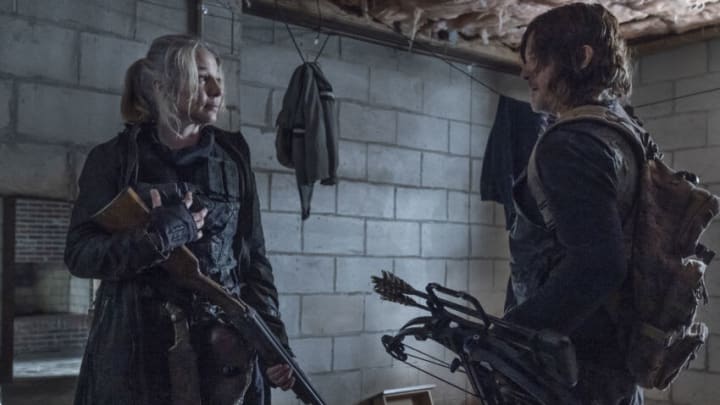
The Walking Dead – loyalty to past friends or current ones?
Let’s assume, for argument’s sake, that a friend breaks with your group at large — Maybe they fell out with the leader of your group or something like that — can you bring yourself to fight them?
The reason I ask is that this problem of fighting with a friend in the zombie apocalypse raises yet another issue: If your willingness to fight with a friend-turned-enemy becomes questioned by the rest of your group, what does that do to your group’s cohesion? Will the rest of your group trust you? And, if they believe that they can’t (Whether they’re right or not), what will they do about it?
In situations like this, where a friend has broken from your group as a whole, the question of divided loyalties can easily cause the cohesion needed for a group to survive to become tenuous. If people in your group think that you might not be willing to clash with your former friend, or worse, fear that you might join them, you may suddenly discover that, instead of having to fight one friend, you have to fight lots of them.
In a case like this, where a friend has broken with the rest of your group, you need to be certain about where your loyalties lie. I don’t know about you, but if I had a friend, even a good friend, who broke with my group, and my group consists of my new friends and/or my family, then my former friend picked the wrong side.
